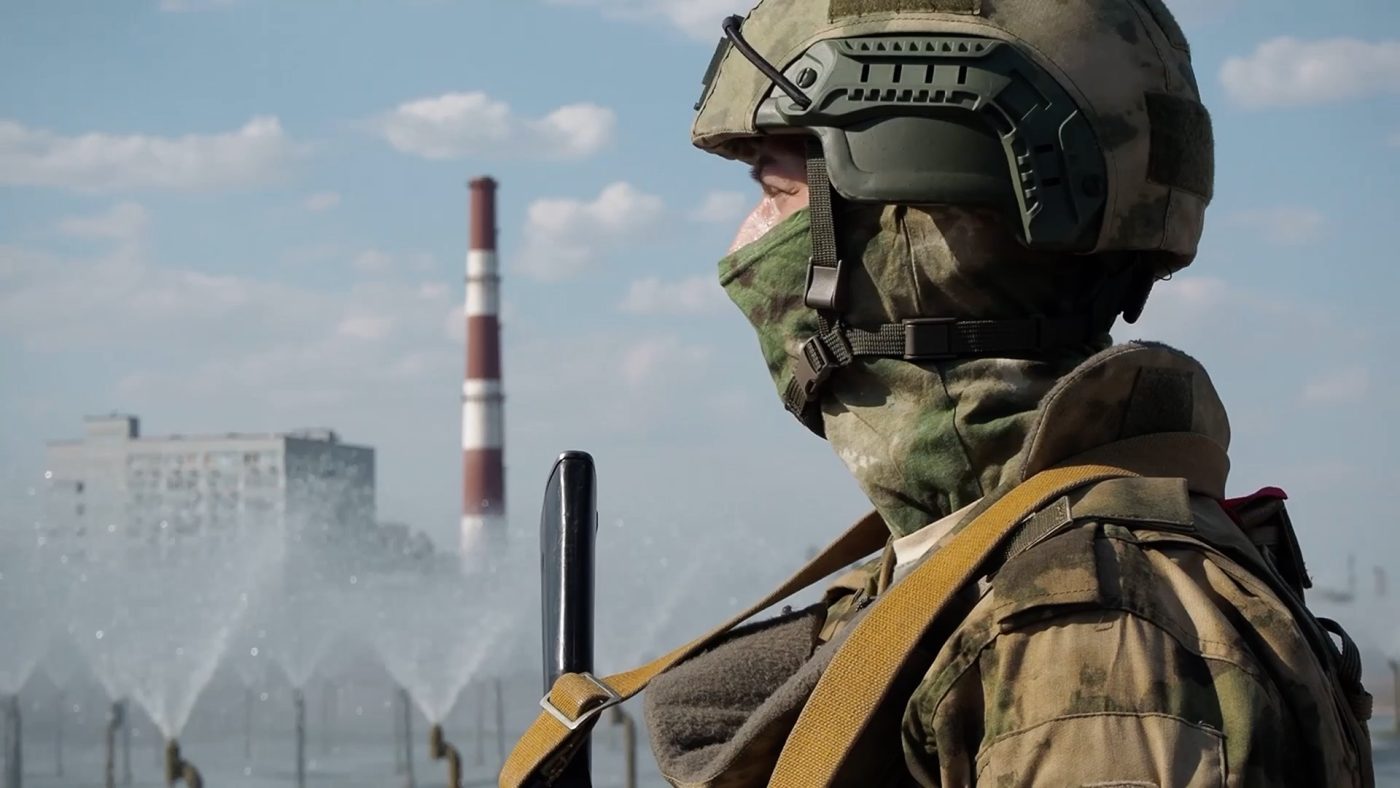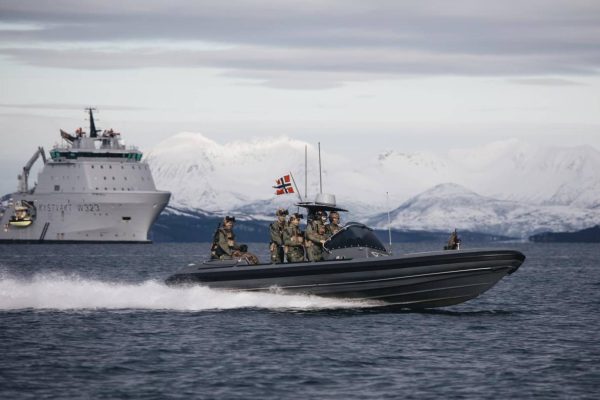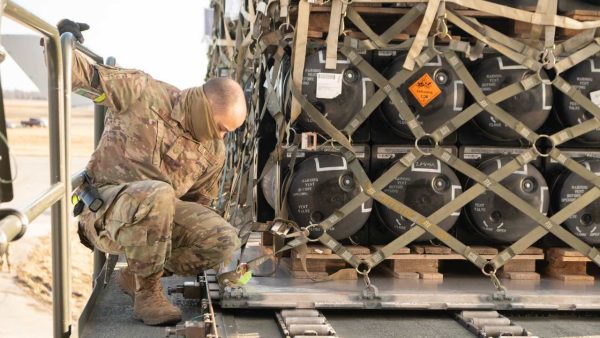Russia’s nuclear industry has been expanding globally with little scrutiny since its full-scale invasion of Ukraine.
While Western nations have focused on hobbling Russia’s oil and gas revenues, Rosatom, its state-owned nuclear energy company, has been left to work unhindered.
Western allies, after deepening their reliance on Rosatom over recent decades, have taken great care not to disrupt the flow of Russian atomic materials and services, even though the company is accused of complicity in war crimes, poses serious safety risks worldwide, and is fueling the war in Ukraine.
Rosatom describes itself as a pioneer and leader in civil nuclear technology, but its outreach is much wider and more nefarious, as shown in a report published in February by DiXi Group, a Ukrainian energy think tank.
This documents the company’s increased involvement in the provision of equipment for military purposes using a high-density core made from depleted uranium.
Many of its activities might have gone under the radar if Rosatom had not unleashed international outrage by joining the Russian military effort at Ukraine’s Zaporizhzhia nuclear power plant, which it has used as a weapon to threaten Europe.
Since occupying the plant — Europe’s largest — Rosatom has breached security protocols by allowing unauthorized personnel to operate it and turned a blind eye to irresponsible military behavior, such as placing landmines in restricted areas.
It has also aided and abetted war crimes against Ukrainians by facilitating the transformation of a part of the facility into a torture chamber.
But concerns about Rosatom’s disregard for nuclear safety extend much wider than Ukraine and have a long history.
In the early 2000s, the company supplied a nuclear reactor with multiple safety deficiencies to Iran, and it is currently completing Turkey’s first atomic power plant in an area of high seismic risk, prompting the European Parliament to raise the alarm over the safety of the Mediterranean region.
Equipment-related risks are aggravated by the fact that many of the power plants Rosatom is developing are located in countries with questionable safety standards.
It is building 28 reactors with an installed capacity of 30 gigawatts in Africa, Asia and Latin America, boasting that it has $200bn in foreign orders for the next decade.
With the exception of Hungary, which has recently signed an agreement with Rosatom for the expansion of its Paks nuclear power plant, European countries have been seeking to diversify away from the company since the full-scale invasion of Ukraine.
Nevertheless, breaking Rosatom’s dominance is complex.
The company and its subsidiaries control about 30% of the global market for enriched uranium, which is required to power commercial nuclear reactors, and around 20% of the 450 nuclear power plants around the world are Russian-designed.
In the US alone, more than a fifth of the fuel used by its 93 nuclear reactors is supplied via enrichment contracts with Russian contractors, mainly Rosatom, while the EU has 18 reactors which until recently relied on Russian fuel.
The February 2022 invasion caught Western countries unprepared. Many had relied on cheap supplies from Rosatom after high domestic production costs and low demand in the wake of the Fukushima nuclear disaster, which forced them to reduce or wind down their own enrichment operations.
Russia’s war in Ukraine also coincided with growing interest in nuclear power, which is increasingly seen as a clean source of energy.
To minimize their reliance on Rosatom, and implicitly limit their vulnerability to Russian blackmail, Western nations have started to stockpile nuclear fuel and ramp up production.
The US, Canada, France, Japan, and the UK have collectively pledged $4.2bn to boost enrichment and conversion capacity globally, giving the West some flexibility in considering measures against Rosatom.
In December 2023, the US House of Representatives passed a bill banning imports of Russian uranium, but the act still needs to be adopted in the Senate and signed off by President Joe Biden.
Even if enforced, it will still contain waivers until 2028, allowing the import of materials that cannot be sourced elsewhere.
Across the Atlantic, EU member states have not gone so far, with the European Parliament merely introducing a motion calling for sanctions against Rosatom, its leadership, and its subsidiaries.
And business and political interests have not aligned.
Some companies or their affiliates, such as France’s Framatome, continue to do business with Russia and plan to export enriched uranium dioxide or work as part of a consortium with Germany’s Siemens to expand Hungary’s nuclear capacity.
Unless there is a coordinated effort to introduce blanket sanctions against Rosatom and its subsidiaries and remove Russian representatives from global organizations such as the International Atomic Energy Agency, which they may be manipulating, Ukraine and its Western partners will remain dangerously vulnerable to Moscow’s nuclear blackmail.
Dr. Aura Sabadus is a senior energy journalist who writes about Eastern Europe, Turkey, and Ukraine for Independent Commodity Intelligence Services (ICIS), a London-based global energy and petrochemicals news and market data provider.
Europe’s Edge is CEPA’s online journal covering critical topics on the foreign policy docket across Europe and North America. All opinions are those of the author and do not necessarily represent the position or views of the institutions they represent or the Center for European Policy Analysis.





